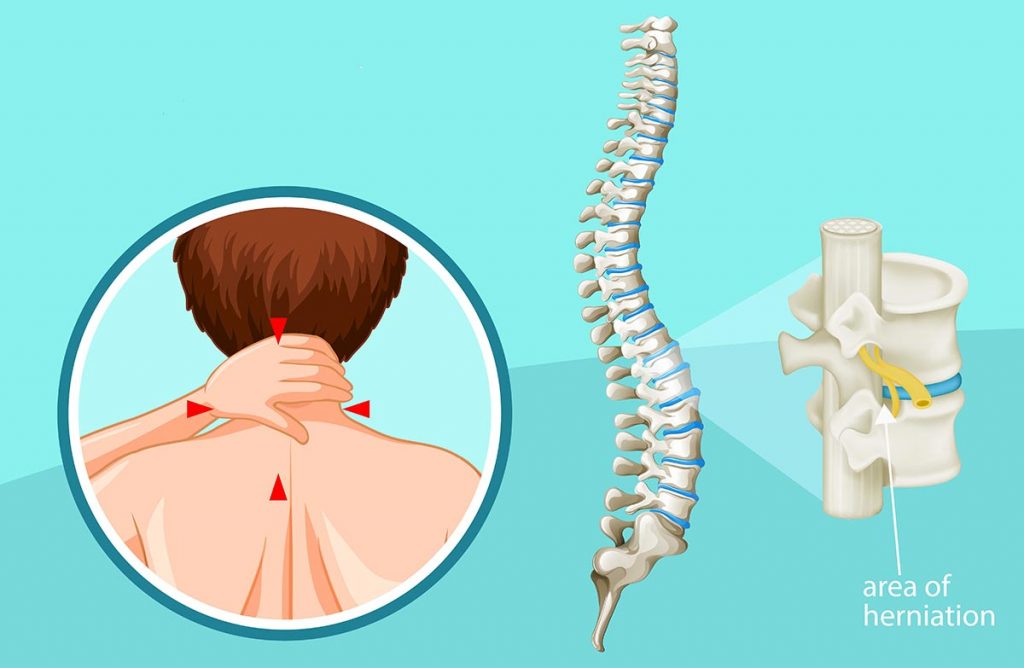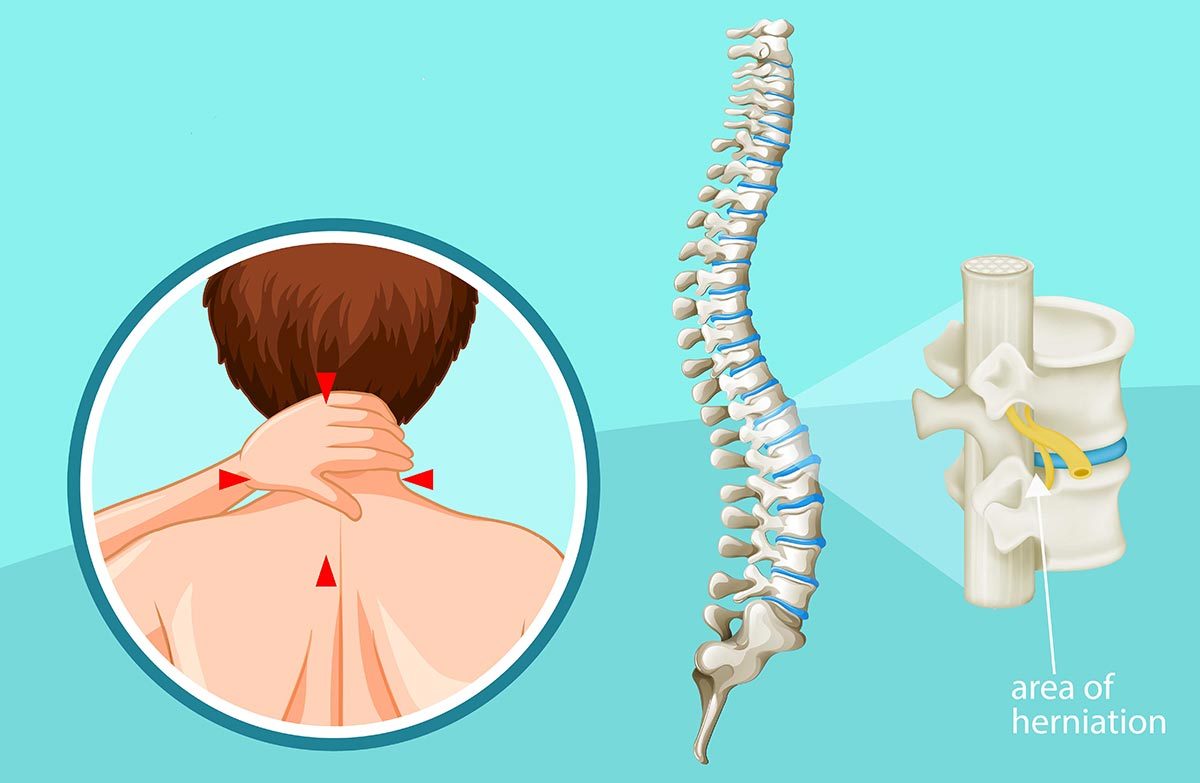Pinched Spinal Nerve
![]()
Call (703) 520-1031 or use the form to send us your contacts.

When there is an occurrence, which causes pain in the neck, shoulders, arm or upper body, in general, the diagnosis could be pinched spinal nerve. The pain experienced is compression in the nerves leading off the neck to the upper body. The reason is, most often, due to the aging process or to a sudden injury.
Symptoms of a Pinched Spinal Cord Nerve
Patients often describe a sharp or burning type of pain coming from the neck when they move their head from side to side. The pain usually decreases when patients place their hands on top of their head. The pain may affect the shoulder and arm affected by the damaged nerve. Those symptoms may include:
- Loss of control or sensation in the affected arm.
- A “pins and needles” sensation in the affected area.
- Weakness to the affected extremity.
Causes of Pinched Nerve
Aging or an injury to the cervical spine is the most frequently seen reasons for pinched nerve pain.
The aging of the spinal cord, or degenerative discs, are discs that have stiffened and have started to bulge. As aging occurs the discs lose water and height and begin to deteriorate. When this process occurs the vertebrae of the spine move closer together, the body responds to this process and forms more bone or “spurs” causing even further damage to the spine.
Patients that do bending and lifting may experience a herniated disc. When the disc becomes worn or injured, the center may press through the disc placing pressure on the nerve root and causing pain.
Doctor’s Examination
The doctor’s examination for spinal stenosis pinched nerve will include a history, physical examination, and tests if needed. After completing a physical history of a patient’s general health and physical activity, the doctor will do a physical exam including the following:
- Full examination of movement in the neck, shoulders, and arms.
- Examine for muscle weakness, change in reflexes, or loss of sensation.
- Check for pain during the examination of the range of motion of the neck or arm.
The doctor may order a cervical radiculopathy test to assist in a diagnosis. Some of the tests ordered may include:
- Computed Topography Scan or (CT) Scan to check for the possibility of bone spurs in the spinal column.
- Magnetic Resonance Imaging or (MRI) scan. These scans will confirm damage to the soft tissue areas of the spine.
- X-Rays to examine the alignment of the spinal cord and any possible damage to the vertebrae or discs.
Treatments
Treatments for cervical neck pain include non-surgical and surgical procedures. Most patients report improvement with non-surgical treatment over time. Some non-surgical treatments include:
- Medications such as non-steroidal anti-inflammatory drugs (NSAIDs), which include aspirin, ibuprofen, and naproxin sodium.
- Oral steroids to decrease inflammation and pain at the affected nerve.
Physical therapy may help determine the exercises needed to decrease pain and prevent further injury to the cervical spine. Therapy along with a cervical neck collar may be necessary to improve severe symptoms. In some particular cases, steroid injections may be prescribed to decrease the inflammation along the spine to help assist in mobility and improvement in the recovery process.
Surgical treatment may be needed when all areas of non-surgical treatment have been unsuccessful. The surgery required depends on the area affected and the specific location of the affected nerve root.
Pinched Spinal Nerve FAQ
Do pinched nerves go away on their own?
Yes, pinched nerves can heal on their own, with rest and over-the-counter pain-medications helping to relieve the pressure being placed on the nerves. If the pain or other symptoms last more than a few days, see a physician. Persistent pinched nerves that do not heal on their own can lead to permanent nerve damage.
How long does it take a pinched nerve to heal in your back?
The time it takes a pinched nerve in the back to heal depends on what caused the pinched nerve. For example, a pinched nerve caused by poor posture may only take a few days to a week to heal. It can take between 4-6 weeks for a pinched nerve to heal when it is due to injury or a herniated disc. It might not heal on its own when due to a condition like arthritis. A pinched nerve can lead to chronic pain or permanent nerve damage in some cases.
What does a pinched nerve feel like in my back?
The symptoms of a pinched nerve include numbness in the area of the nerve or a sharp burning radiating pain. You may experience muscle weakness. Other symptoms include a sensation of pins and needles, called paresthesia, and feeling like a hand or foot has gone to sleep. The symptoms experienced depend on the nerve impacted.
How to fix a pinched nerve in the back?
There are a number of recommended self-treatment recommendations you can try. They include adjusting your posture, wearing a splint or brace to keep the area immobilized, and stopping activities that aggravate the nerve. Many physicians recommend rest.
In some cases, patients are referred to a physical therapist to learn exercises that strengthen the muscles to relieve the nerve pressure. Other treatments include medications and last-resort surgery.
